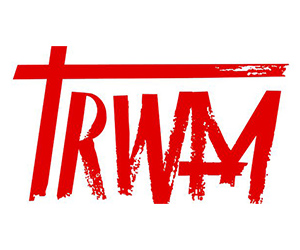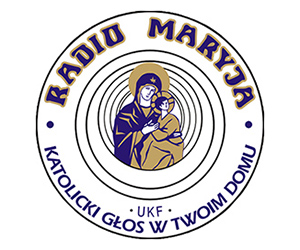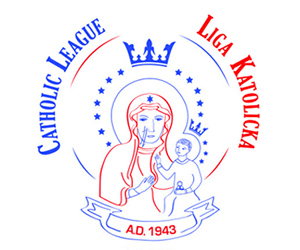
/Fr. Lech Wołowski/
A reflection on aspects of Catholic education in the Christian family
In searching for a model of a strong and modern Christian family one needs to consider the issue of Catholic education as a crucial part of any such a search. I’d like to concentrate, in this short reflection, mainly on the educational role of Christian parents. The first and the most important issue to underline at the very beginning is the fundamental right (and at the same time also a duty, but as the Pope Francis says a joyful one!) of Christian parents to provide their children with sound religious education.
Why is this so important?
When we talk about the Catholic education of children, our thoughts usually circle around the school or parish catechesis. The point I want to make here is that it is too late if parents start to think about their children religious education when they are approaching the school age. Even the best Catholic school cannot make up for the deficiencies in a child’s spiritual development if parents have neglected their task as religious educators at the earliest stages of their child’s development.
The typical reason why parents fail to catechize is that they think they simply don’t have either enough time or required skills or professional preparation. They prefer not to engage in the task just in case they might fail in some way. After all, it seems better to leave the task to the “specialists” such priests or nuns who teach catechesis in schools than to introduce one’s child to some possible errors. A parent may be fearful of imposing on their child incorrect religious beliefs or spiritual habits.
Below I indicate some very simple and practical examples of how a parent can provide their children with absolutely safe and necessary Catholic education which does not require any professional preparation and does not run any risk of harming their children’s spiritual sensitiveness.
The Prayer
Before parents can undertake the task as Catholic educators of their children, they need to make sure that they themselves build their lives on Christian values. The worst thing would be to teach a child something we do not believe or do not practice ourselves! And the best way to check if we really live a Christian life is to determine whether we pray. In the case of a young couple, the best test would be if they ask themselves: do we pray together? If not, the couple needs to determine why not: “Why don’t we pray together? Are we ashamed? But we’re both Christians ‒ aren’t we? There’s probably nothing to be ashamed about! Maybe we simply never tried to! So let’s try! Why don’t we end our long day with a short prayer together before we go to sleep?” A concrete example of such a prayer could simply be “Our Father” supported by a reading from the section on the Lord’s Prayer from the Catechism of the Catholic Church (CCC 2759-2865). If they have a baby they can pray with it even if the baby cannot speak a word yet. The baby will at least watch and hear the parents praying. When s/he grows up a bit s/he will try to join them, and they won’t have to force him/her! S/he will be keen on joining on her/his own! But if they leave the children to grow up to school age without hearing prayers then they might never be able to get them pray with them!
As a priest in Poland, I visit Catholic families during Christmas time, which traditionally includes the rite of blessing of the household. I see how this family prayer works in practice. If there is common prayer in the family, the youngest children can’t wait to show me how well they already pray (together with their parents) even if they are so small that they can hardly utter a word! But if there’s no common prayer in the family, the children (the small ones as well as the older ones) are really ashamed to pray, not only with their parents, but even with a priest!
Of course parents and priests have to be careful here. There is a threshold age usually when children become teenagers when they would start to prefer to pray on their own and not with their parents or during official situations like the pastoral visit. We need to respect that! The worst thing we can do in such a moment is to keep force them to pray together “as we always did”. An adolescent wants to start to pray on his or her own! And this is good! If we try to force them we’ll fail sooner or later, and we risk discouraging them from prayer ‒ in the worst case ‒ maybe even untill the end of their lives!
But that doesn’t mean that family prayer needs to stop completely at such a point! Even if a family no longer meets every night for common prayer before bedtime, it can still begin each meal with a prayer. The same applies regarding a prayer in the car before a trip and in many other similar situations.
Sunday Mass
The second step of a good Catholic education that each parent can provide to their children without any special knowledge or preparation is to take them to Sunday Mass (cf. CCC 1324-1327). Yes, it’s that simple! Even if the child is too young to understand it. The child and the whole Church will still benefit from the Mass. It is a bit like baptism (Cf. CCC 1250-1252). The child also doesn’t yet understand but spiritual benefits are great both for the child and for the Church! As time goes on, the child will naturally and slowly engage in participating in the liturgy. S/he will observe her/his parents, the people around them, and the priests. S/he will try to enter with them the mystery.
Of course it’s not always that simple. There could be a transition period when the child gets quickly bored and may start to behave in not the most appropriate. S/he may start to cry or to try to run all over the church. It happens and we all need adjust. The worst thing we can imagine is a Church full only with perfectly behaving adults people, a sure sign that this Church lacks life.
We need to learn that each child present in the church, especially during Sunday Mass, is an enormous blessing and a sign that the Church is alive, that she is growing, that she has a future, and that she is strong with the power of young families that introduce their children to the Church! If someone claims that he or she cannot participate in the liturgy because the sound of a crying baby “disturbs” them, then unfortunately they don’t know yet what the liturgy and the whole Church is about! (cf. CCC 1140-1144: “the celebrating assembly is the community of the baptized”, not only the grown up ones!). If we want to rejoice together in a strong and healthy Church we have to encourage all young families of our parishes to participate in our Masses even with their noisy children!
Sports and a healthy life style
At first, it might seem that sports, although they are a part of education, don’t have much in common with religious, and in particular, Catholic education. Fortunately that’s not the case. The classical saying “healthy body, healthy mind” comes from the Latin “Mens sana in corpore sano” (Satire X of the Roman poet Juvenal) and tell us a lot. In fact in his poem Juvenal said “You should pray for a healthy mind in a healthy body.” Unfortunately, as we see, only the second part of his original statement has survived to our times. Isn’t it time we recognize in its entirety?
This classic saying talks about the perfect balance which can take place in the life of any healthy person. Prayer takes the first place! ‒ as we have said. But at the same time, we cannot neglect our physical and intellectual activities, which are strictly dependent on each other.
And exactly as in the case of prayer, if we neglect to teach our children to gradually participate in healthy physical and intellectual activities it will be too late for them to acquire good habits when their first exposure to sports takes place during their first physical education class in school.
There are so many beautiful biblical passages comparing spiritual life, and especially spiritual struggles, with sporting events and training. The writings of St. Paul are among the best examples (cf. e.g. 2 Tim 4,6-8; 1 Cor 9, 24-27). Why don’t we spend some time reading them together as a family, explaining them to children, teaching them how they translate into basic rules like “fair play” or “no pain, no gain”. Why don’t we show them that sport teaches us how important endurance and a strong will are. Show them how important it is to set up a goal and to work systematically to achieve it! And last but not least: how important it is to get up and be ready to fight again even if we fall or stumble over some obstacle!
This obviously touches two of the most difficult and subtle aspects of Catholicism: The sacrament of penance and the mystery of suffering. Using the analogy of sports activity, we can at least introduce our children to the challenges but they won’t avoid them completely. We can tell them that in their spiritual life, they will surely fall at some point but just as on the sport’s field or track there will be a way to “get back on track” and through the sacrament of reconciliation. Moreover, just like a sportsman needs to go through a lot of challenges and pain during a hard period of training, they too will encounter similar problems in their lives. But the more endurance and understanding a sportsman shows in his training the more likely he is to win the competition and get the reward. The same goes with our lives: if we want to realistically hope for our eternal reward, then will have some suffering to endure! Our children have a right to be prepared.
A strong family means a strong Church, because a truly strong family knows how important it is to teach their children good values, on which they will continue to build their families, parishes, communities and the their future. But we cannot teach our children these values in a boring, dry and purely theoretical way. We need to combine it with the activities which speak to their hearts and minds, through their bodies ‒ that’s basically what Catholic sport education is all about.
Internet
Taking into account that social networks like Facebook, now have over one billion active users, we can surely say that most households in a developed country has some kind of Internet access. Everyone from a two year old baby to the one hundred year old grandpa uses some kind of Internet applications.
Once again, parents need to be prepared for the task of being preschool Internet educators of their children. They need to spend some time with them showing them how good and great this modern tool is but also they need to be ready to set up some healthy rules of use to avoid potential danger.
It seems that the worst thing they could do in this regard is to buy a computer with Internet access, as a Christmas present for their four or five year old son or daughter and then leave the child alone in a closed room with that “monster”.
I remember a visit to my friend’s home. We sat down to talk and at some point I noticed that his four year old daughter was not around. I asked him: “Where is your child?” He replied: “I’ve connected her to the Internet … I hope she won’t bother us at least for an hour or so.” I definitely preferred if she would bother us! My friend thought that the idea of “connecting her to Internet” was both funny and clever. It sounded almost like a joke at first. But it wasn’t. It was not funny at all!
Young children need to be assisted by their parents as they learn how to use a computer and search the Internet. We all know what kind of danger looms there. Of course there will be a time when we will have to allow them to do something on the net on their own, but only if we have first taught them the rules! We have to explain to them, a way they can comprehend, the difference between the real and the virtual world. We also need to explain that there is responsibility that we need to take for our actions in this virtual world (cf. CCC 1913-1917 about responsibility and participation). We have to make it clear that some of those actions are good and noble and some are wrong and forbidden ‒ it may be obvious to us, but surely not to them, if we don’t say it clearly!
When the time arrives that we think our child is ready to search on his/her own, some rules still apply. We still should be around, not necessarily in the same room, but at least the doors of our child’s room should be open. After all, we should be ready to help him/her whenever there is a need. We should also install some kind of firewall and child protection software. And finally it’s good to control the time our child spends in front of the computer! It is important for his/her mental and physical health!
Conclusion
We definitely have not exhausted the issues here. In fact we’ve barely managed to touch all of them. But the point was not to provide a complete solution to all issues regarding Catholic education in the family but rather to raise awareness of it and provide some useful examples. If we hope for a good, healthy and strong Church in the future, we have to make sure that its building blocks, that is Catholic families, are good, healthy and strong. Families will be good, healthy and strong only if we all make sure that parents teach their children how to become good, healthy and strong Christians from the very beginning of their lives!
[1] The author is a priest of the Archdiocese of Cracow studying at the Gregorian Pontifical University in Rome and is supported by a scholarship from the Catholic League for Religious Assistance to Poland and Polonia, which is greatly acknowledged.







